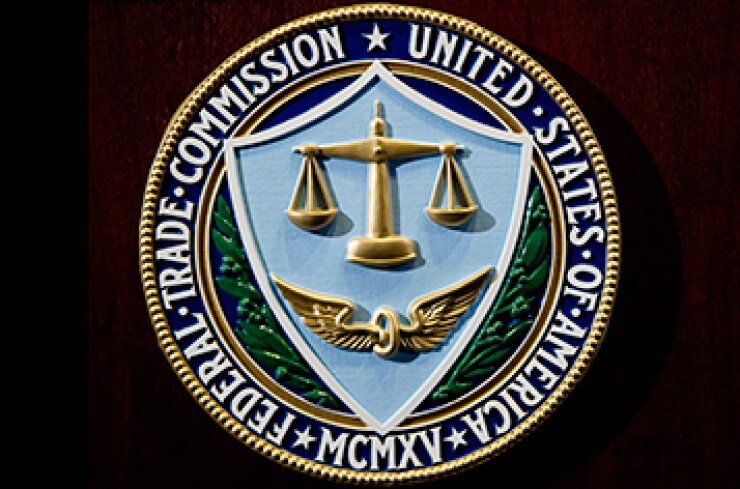
CHICAGO – The Federal Trade Commission's amplified challenges to not-for-profit healthcare mergers may not change much under a Trump administration, one law firm says in a
"The recent election may not produce a change in the FTC's approach to hospital mergers. President-elect Donald Trump has publicly criticized some mergers and has expressed concern about concentration in some industries," said the report published by Holland & Knight LLP Thursday.
"In addition, former FTC Commissioner Joshua Wright, who is reportedly advising the President-elect's transition team, referred to the concentrated hospital industry as 'noncompetitive' and supported the FTC's merger challenges in that industry in a
The Illinois systems -- Advocate Health Care and NorthShore University HealthSystem – announced Wednesday they will continue to pursue a merger despite a federal regulatory victory that has blocked their plan so far.
A federal appellate panel late last month reversed U.S. District Court Judge Jorge Alonso's June ruling rejecting the Federal Trade Commission's request for a preliminary injunction against the merger as it pursued an administrative anti-trust action. The FTC has argued the merger would harm consumers and violate anti-trust rules because it would limit consumer choice in a wide swath of the region.
"We remain steadfast in our belief that bringing our organizations together is the right thing to do for consumers and therefore we are choosing to move forward with our case," Advocate and NorthShore said in a joint statement.
The appeals court found flaws in the district's court's findings on how the merger would impact local competition pricing.
"The geographic market question asks in essence, how many hospitals can insurers convince most customers to drive past to save a few percent on their health insurance premiums? We should not be surprised if that number is very small. Plaintiffs have made a strong case that it is," the appellate decision said.
The opinion remands the case to the district court level for further review. The merger remains enjoined pending the district court's reconsideration of the preliminary injunction motion. The FTC's challenge is based on Section 7 of the Clayton Act, which forbids mergers likely to substantially lessen competition.
The systems' saga is being closely watched by the not-for-profit healthcare sector because the FTC has amplified its scrutiny of mergers as consolidation continues unabated in a sector grappling with federal healthcare reform.
"The fall of 2016 has proved to be a difficult time for hospitals seeking to complete mergers in the face of antitrust challenges brought by the Federal Trade Commission," wrote Holland & Knight partners David Kully and Christopher Carmichael. "Hospitals contemplating a merger should be prepared to show that patients possess local alternatives to their facilities and insurers can offer successful plans that do not allow access to either of the merging parties' hospitals."
After the FTC prevailed at the appellate level challenging a Penn State Hershey Medical Center and Pinnacle Health System merger, the two dropped their plans over concerns of a prolonged battle.
"The FTC's success on appeal in these two cases will only embolden it as it weighs challenges to future hospital mergers. Although merger challenges always turn on the particular competitive conditions in the hospitals' specific local service areas, hospitals evaluating merging with nearby competitors should keep in mind the analytical approaches laid out in these decisions," the Holland & Knight report said.
The Illinois systems first announced their intent to merge in September 2014. The FTC and state moved to block the move with the filing of an administrative complaint in December 2015 that sought a preliminary injunction. It warned that the combined system would control more than 50% of general acute care inpatient hospital services in the Chicago North Shore area and would harm consumers by imposing higher costs and diminished incentives to upgrade services.
The systems countered that the FTC's concerns were inflated and services and pricing would not be harmed but improved. After a six-day administrative proceeding in April, the district court in a June ruling sided with the systems and refused to grant the injunction finding that the FTC failed to show "a likelihood" that it would "succeed on the merits of their antitrust claims," the legal threshold for granting an injunction.
Both Illinois systems carry double-A level ratings and the rating agencies took a positive view of the proposed merger. Advocate already is the largest not-for-profit healthcare system in the state.
Advocate is the larger of the two with 12 hospitals and more than $1 billion of debt outstanding while NorthShore operates four hospitals and has about $300 million of debt. The new entity would be known as Advocate NorthShore Health Partners and operate 16 hospitals with more than $7 billion in annual revenues serving 3 million patients annually.





